I’ve always had a bit of a thing for bad girls, and I don’t think I’m alone on this one. Who doesn’t love gals with switchblades hidden in their beehives, girls with killer smirks who drink the tears of their enemies, and ladies that enact revenge without smearing their lipstick? And why do we love them? Is it the clothes, the hair, the make-up? Or is it more about attitude, manipulation, and that pesky sexual ambiguity? For slightly shy girls like me, bad girls let us live out our wildest fantasies. All those things we wish we could have done to that one girl in high school who made our lives a living hell. For these reasons, this column, “Rhymes with Witches” will be a weekly piece dissecting our love for the fictional mean girls that make it hurt so good. Every week, come take a walk with me on the wild side (switchblade not included) to explore the evil women we love on TV and in film and why we love them. Heroes and damsels in distress be damned.
Poor Rory Gilmore. It must be hard to own the face of an Audrey Hepburn porcelain doll, have a mom that is the human personification of Sassy magazine, and have a cushy trust fund that extends from the Revolutionary War to pay for the Ivy League college of her choice. Thank the goddess she had the pleasure to have Paris Geller in her life, to make things interesting and create the ultimate frenemy love story than in Amy Sherman Palladino’s magnum opus, Gilmore Girls.
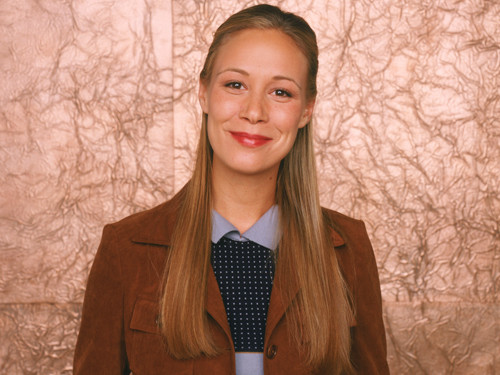
From the moment they met, Paris and Rory had this powerful underlying tension, be it sexual or otherwise (Rory/Paris erotic fanfiction, any one?). Sure, female rivals have been in mythology and folklore since antiquity, probably even older, but these relationships served (and sadly, still do) as evidence of misogynistic views of women as vain and “catty” creatures, too emotional and envious of each other (and don’t even get me started on “penis envy”) to serve as rulers, citizens or even autonomous entities.
While this archetype has changed little since the times of Athena cursing Medusa to Gorgon status for daring to state she was more beautiful than the goddess, Paris and Rory’s frenemy relationship grew, not from jealousy of each other’s looks or over a guy (even if in the first season Paris might have thought so) but for academic superiority. They feared each other because they shared the same fierce determination and resilience to excel in the intellectual field, instead of an aesthetic one. As the seasons progressed, it became clear how much they actually needed each other to grow and become the strong women they were suppose to be. Rory needed to grow a backbone and Paris needed to view the world as something other than a big test you either fail or ace. It’s complicated and complex, just like their relationship.
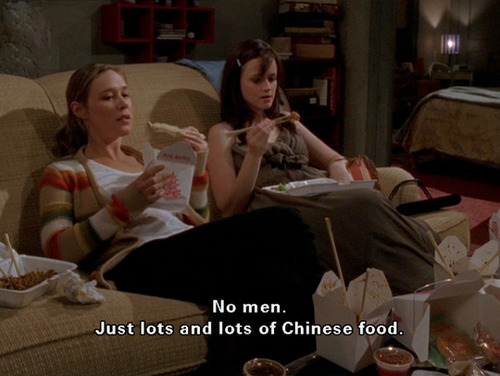
What I like about Paris’ “meanness” is that it’s not your usual run of the mill mean girl behavior. Sarah M. Coyne terms stereotypical female behavior as “relational aggression” in the article “Frenemies, Fraitors, and Mean-em-aitors” and examples include “manipulating others’ social standing and reputation through communication behaviors such as spreading rumors, social exclusion, and threats of withdrawal of acceptance and love”. This behavior between girls is theorized to come from an evolutionary practice of women gaining power (which in most other scientific papers usually means a mate) through their appearance. But Paris sees her power stemming from intelligence and academic achievements. Paris moves away from any kind of evolutionary mumbo jumbo and fights with wit and brains instead of gossip and backstabbing.
Teenage girlhood is a kind of torture I would only wish on my worst enemies. Sure Rory had her troubles (choosing between guys, choosing which Ivy League to attend) but Paris truly felt the grunt of a geek solely focused academics and so completely clueless about boyfriends, dances, fashion, aka “girly” stuff. The same stuff I was clueless about too. No matter how many books she read or how many speeches she researched, nothing could prepare her for being a teenage girl. Through her entire run in Gilmore Girls, she’s seen as insecure and strong, smart and lost.
Though her name is not Gilmore, Paris Geller is the true break out character in this gem of a series, as one of the most heart wrenching and complex portraits of a teenage mean girl.




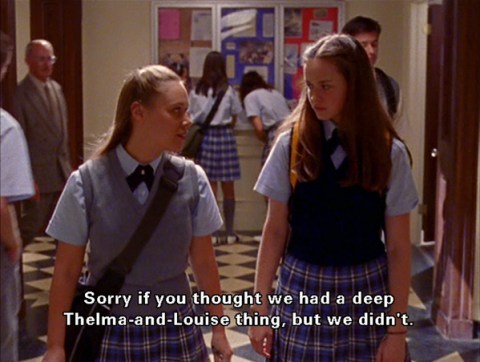
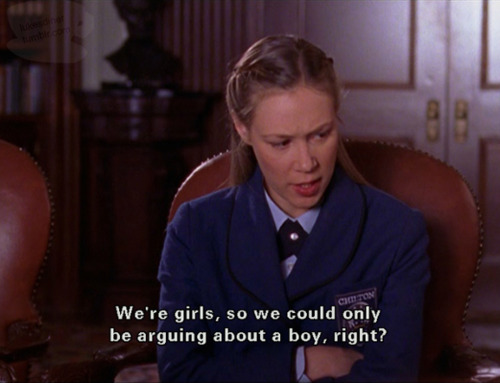
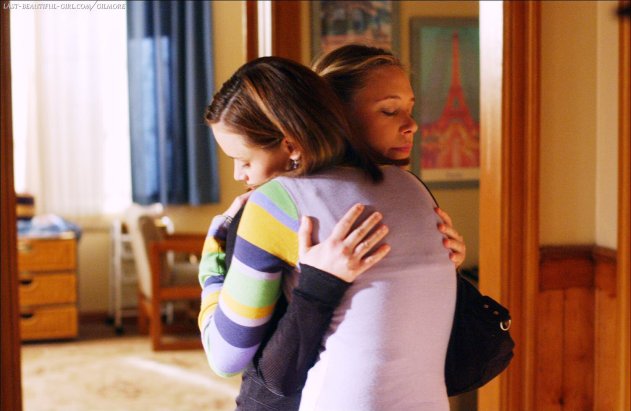




Comments
I haven’t even read past the column description yet and it’s already my new favourite column!
I ALSO FUCKING LOVE THIS COLUMN
I love Paris Geller forever and ever, amen. Also this: http://the-toast.net/2013/12/13/femslash-friday-rory-and-paris/
And, “Paris truly felt the grunt of a geek solely focused academics and so completely clueless about boyfriends, dances, fashion, aka “girly” stuff. The same stuff I was clueless about too. No matter how many books she read or how many speeches she researched, nothing could prepare her for being a teenage girl.” Yeah, I’m pretty sure that’s what I loved about her, too. That and sometimes the funniest characters on a show are the ones you don’t really expect it to come from. Whereas Lorelei was a 24/7 quip machine, Paris was slier and got in some really good digs. For example:
[Rory and Paris walk in from the rain]
Yale Student: Oh, is it raining?
Paris: No, it’s National Baptism Day. Tie your tubes, idiot!
It’s SOOO mean, I love it.
Amen, one of my favourite Paris lines of the entire series. Up there with “Make a left at the haystack and follow the cows” (re: Where is Stars Hollow).
You just combined two of my favorite things – Autostraddle & Gilmore Girls! I’ve never taken a critical look at this show before. Sounds like a good excuse for some marathon sessions to me. :)
Also, I love the idea of this column in general!
I’m in the middle of a re-watch now (my roommate had never seen the show before and didn’t think she’d like it, and I had to prove her wrong. Five seasons later, she gets home every day and annoys me for hours to start our Gilmore Girls marathon of the evening. :P)
Anyways, I highly recommend a rewatch at least once a decade. You always pick up on more references and quips than you did the last time, and watching these storylines play themselves out again somehow feels like coming home.
(Also, personally, I find that Rory’s valedictorian speech is the first stop whenever I want to make myself cry.)
As a life-long, die-hard fan of Gilmore Girls, the best show there ever has been or ever will be, I have to say that:
1) I love that this is here, because Paris is awesome and deserves to be worshipped as the goddess she is, and
2) Even the mere mention of Rory/Paris slashfic really squicks me out. I know that’s weird, I can’t even explain it, but something about the two of them hooking up just feels so, so wrong to me.
I feel like a romantic relationship would really take away from the complexity of their enemy turned frienemy turned annoying friend relationship.
I love everything about this. Everything.
Well done.
Along with all of my other favorite columns, this is my favorite column. Also, I would enjoy one night in Paris, if you know what I’m saying, and I think you do.
I love this. Love it. When I first moved into this apartment, I decided to save money by skipping cable/internet/netflix/etc. The only source of background noise I had for a solid year was seven seasons of Gilmore Girls on DVD. I watched at least four episodes a day for AN ENTIRE YEAR and I’ve spent a lot of time analyzing the characters. My favorite is the episode where Paris doesn’t get into Harvard but makes that painfully awkward speech about having sex with Jaime because my heart actually breaks for her.
To pay homage to Lorelai, “At least we’ll always have Paris.”
All hail Paris.
*cue theme music*
Ah, this show.
i am so grateful you wrote this, i will always kind of be paris geller and i’m so glad someone gets her
The only criticism I’ve ever really been able to develop for this show has been about its rich whiteness. You just opened up a whole new realm. Great article; I love the links to Greek Mythology!
I LOVE Paris. I mean, everyone wants to be a Rory, but I embrace my inner Paris.
Good read!!
OMG GILMORE GIRLS ON AUTOSTRADDLE ALL OF MY DREAMS HAVE COME TRUE
Welp, I would be okay if this was the last thing I ever read on the internet.
yes!
What would GG be without Paris?! <3
Gilmore Girls was my teenage self’s favourite tv show but I never did truly appreciate Paris until now.